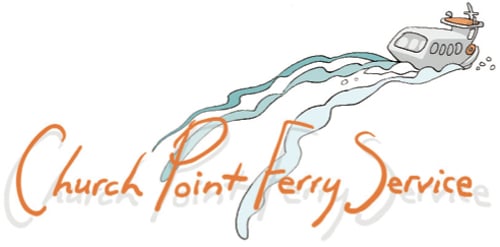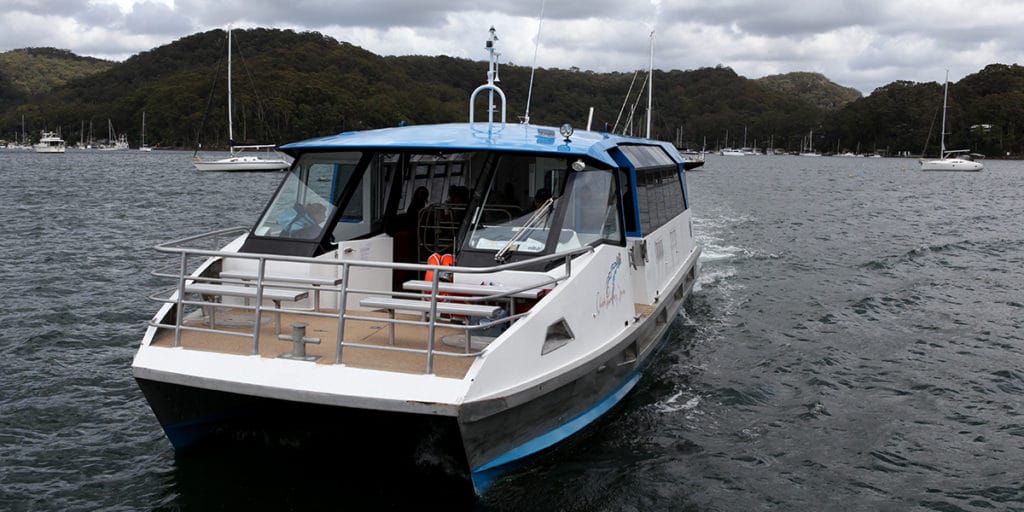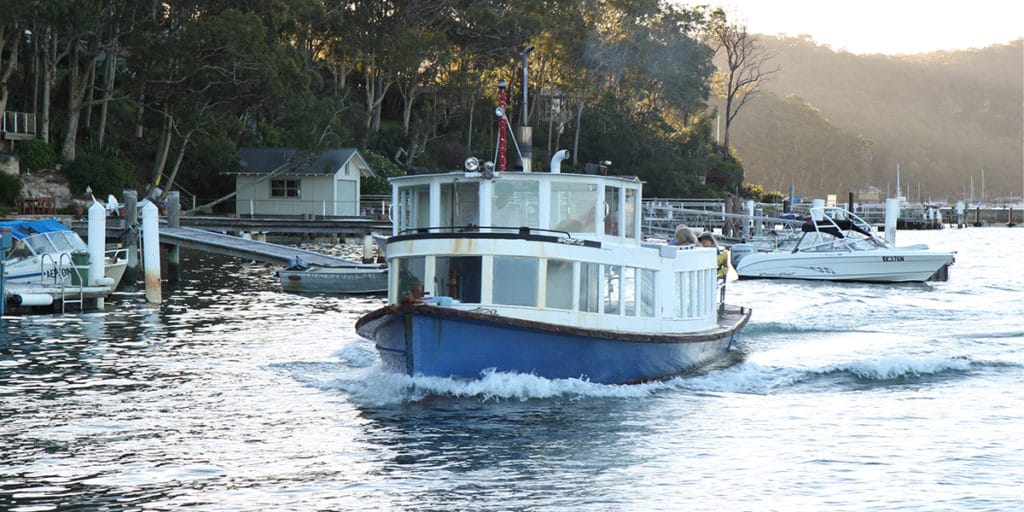About the ferry service
 Church Point ferries have carried passengers around southern Pittwater since the 1940’s. Not only does the service have a long history, it is vital transport for the offshore community of approximately 2000 people. These are the boat access only residents of Scotland Island and the western foreshore bays of Ku-ring-gai Chase National Park.
Church Point ferries have carried passengers around southern Pittwater since the 1940’s. Not only does the service have a long history, it is vital transport for the offshore community of approximately 2000 people. These are the boat access only residents of Scotland Island and the western foreshore bays of Ku-ring-gai Chase National Park.
Needs and challenges for a greener ferry service

- Meeting customer expectations
- Complying with Ministry of Transport regulations
- Implementing credible, effective initiatives
Ferry service owners Penny Gleen and Simon Wastell run a fleet of three vessels: the L. Duck and the aluminium Amelia K, known locally as ‘the Tin Can,’ are the main ferries. A timber vessel, the Elvina, built in the 1920’s, provides support.
Customer expectations: Gleen and Wastell were aware of a growing ‘green’ attitude from regular, commuting customers. Surrounded by bush and beautiful waterways, it is a community focussed on its environment. Community members themselves, sustainability is more than a good business strategy for the owners. They had already put recycling and waste reduction in place, and ran a low impact ferry office. But it was not enough. They wanted a significantly lower footprint from the ferry runs, numerous times a day, 365 days a year.
Compliance: As a private ferry service they could implement sustainability initiatives. They were limited, however, by Ministry of Transport regulations. The Ministry, for instance, determines ticket types and prices. Any new programmes involving tickets needed to comply.
Credibility: Gleen and Wastell needed help developing and implementing green initiatives. They wanted to ensure credibility and transparent processes. They decided to work with sustainability specialists, Pangolin Associates. The carbon management company could help them plan, implement, as well as educate staff and customers as needed.
Sustainability solution

Two – part sustainability program:
- Offsetting: Pangolin Associates calculated greenhouse gas emissions from the ferries’ fuel. Pangolin also set up carbon credit offsetting of the emissions via a new Green Ticket.
- Reforestation: through Pangolin Associates partner, Trees for Life, the ferry service now invests charitably in reforestation.
Certified carbon credits: On 1st January 2011 the ferry service introduced the multi-trip Green Ticket. Passengers can choose to pay an additional $1 for a 12-trip pass ($60).
Mainly that dollar goes to offsetting fuel. Gleen and Wastell could offer a Green multi pass, but not a single or concession ticket due to Ministry regulations.
Pangolin Associates purchase the internationally certified carbon credits for the ferry service. Mainly these credits support global renewable energy projects, such as wind and solar. Every credit purchased effectively removes one tonne of carbon, or equivalent greenhouse gas, from the atmosphere. Their website and signs on the ferry explain this to passengers and report progress.
The initiative means passengers not only help the ferry service become an environmentally friendlier business, the small contribution reduces a passenger’s own footprint on the Planet.
Reforestation: In addition to global carbon credits, Gleen and Wastell wanted to make a difference locally. They invest a small part of the extra dollar charitably in Australian reforestation. Through the organisation Trees for Life, passengers also put managed, native trees in the ground guaranteed for 30 years.
Results to date and new initiatives
The feedback has been fantastic. “We’re chuffed with the response from our passengers, and also because we are the first privately owned ferry service to take on such an important initiative.” — Penny Gleen, Owner, Church Point Ferry Service
Three years later, of multi-pass tickets, the Green Ticket uptake is consistently between 82 – 85% of sales. Put in other terms, as of 1 January 2014 the Green Tickets (or, the ferry passengers) have removed 256 tonnes of greenhouse gas and additionally planted 256 trees. It’s similar to taking 768 cars off the road for a month.
Future initiatives
While fuel is the main greenhouse gas emitter for the business, Gleen and Wastell want to go further. They aim to be a carbon neutral operation. They have now upgraded the aluminium Amelia K with more efficient engines. They have also switched the ferry office to GreenPower.
